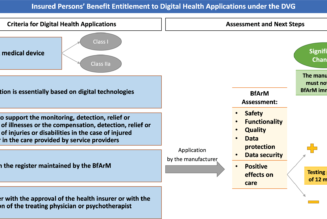The South African economy is expected to contract by up to 7.2%, reports Finance Minister Tito Mboweni. He says this will be “the largest contraction in 90 years”. And it’s no secret that the COVID-19 pandemic has played a massive role in exacerbating the issue.
According to the World Bank Blog, now is the time to prepare for public-private partnerships (PPPs) as these could play an increasingly important role in reshaping South Africa’s post-pandemic economy.
Tumi Moleke, Head of the PPP Unit at Treasury, believes “the timing is perfect to mobilise the utilisation of the PPP model, and it is now paramount to deliver economic growth for the public interest.”
What exactly are PPPs?
/* custom css */
.tdi_3_1a1.td-a-rec-img{ text-align: left; }.tdi_3_1a1.td-a-rec-img img{ margin: 0 auto 0 0; }
“[PPPs] are by nature large-scale projects that draw on a multitude of resources,” says Vino Govender, Executive of Strategy, Mergers and Acquisitions, and Innovation at Dark Fibre Africa. “While these projects have a public-service-delivery component to them, they also deliver value to private industry partners, and hence there are the business- and operating-model components to them too.”
These collaborative components are necessary to building an inclusive economy that fosters job creation and delivers essential services – something so critical in times like these.
Here are five ways in which technology could enhance PPP projects:
-
Technology drives innovation
Innovation is key when it comes to exploring new solutions and ideas, and in this case, new ways to ensure that PPP projects are effectively boosting the South African economy. It’s crucial in a rapidly advancing world that innovation is driven by technology that fosters communication, collaboration, and creative problem-solving.
-
It can promote efficiency
Technology can allow PPP projects to work in a more streamlined and functional manner. This is because today it’s easier than ever to bring together multidisciplinary teams to collaborate on projects, implement automation, and reduce troubleshooting.
-
Tech can help organisations deliver projects faster and increase delivery capacity
Large PPP projects are usually linked to public services, which are key to the livelihood of South Africans, so timing is crucial. Technologies like IoT, analytics, and AI can come together to shorten delivery time of projects and lead to higher services availability.
-
It transforms business models
Technology has fundamentally changed the way that businesses produce, while altering the way that consumers purchase and consume. The same is true when it comes to PPP projects, which now have to follow consumption-based models.
-
Technology can encourage skill augmentation
PPP projects need to rapidly equip teams with the necessary skills and resources they need to support digital transformation. Technology makes this easier than ever as it can help foster a culture of connection whilst investing in skills for the future.
“PPPs offer a solution that brings investment and skills to the table. Where the government brings the mandate and regulation, the private sector can contribute skills and finance,” says Govender. “This is also how I see the industry supporting the local economy in terms of GDP growth and job creation.”
With this in mind, it’s clear that PPPs are critical to the restructuring and recovery of the South African economy – and access to sustainable technology solutions are key to rapidly deploying these projects.
Staff writer











